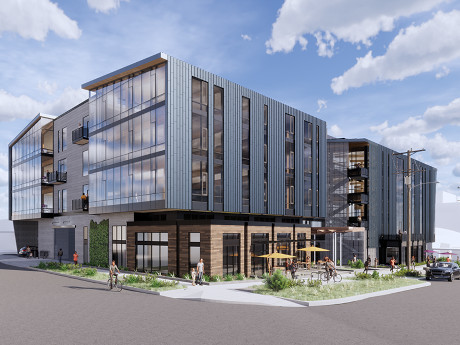— By Lisa Stewart, Senior Managing Director, JLL; and Nick Menghini, Puget Sound Research Manager, JLL —
Real estate market participants are maintaining cautious optimism for improved conditions across the Puget Sound as signs of vitality are emerging despite persistently challenging economic forces. Viewed through the lens of prior real estate cycles, it’s clear the Seattle area has a greater critical mass of highly skilled talent and a broader, more resilient economic base than previous slowdowns. Among the promising indicators are the Puget Sound’s rebound of population in-migration, from net outflows during the pandemic to more than 53,000 new residents moving here in the first half of the year.
Seattle now lays claim to being the fastest growing of the top 50 U.S. cities, according to Census data. Several leading employers are also growing again. This includes Boeing, which has more hiring underway than in years’ past. Rising star Blue Origin has had about half as many open positions as Boeing over the past 12 months. The life sciences sector is further expanding as Big Pharma firms like Pfizer, Moderna and Novartis join homegrown startups with significant Puget Sound presences.
Overall, companies encouraging a return-to-office (RTO) have brought more daytime foot traffic to employment centers and local retail, with the strongest gains coming in Lake Union. Relative to 2019 averages of Tuesday-through-Thursday activity, the Seattle CBD is just under 50 percent of pre-pandemic foot traffic levels. Bellevue CBD is at about 65 percent and Lake Union at 76 percent. Continued improvement is expected in the fall as more companies refine and enforce their RTO policies.
That said, the lingering soft real estate conditions will continue to challenge landlords with increased vacancy and abundant sublease space, but lease transactions are slowly gaining momentum. This is particularly true in the trophy asset class, where companies are choosing well-amenitized, quality buildings to attract more workers back to the office and amplify their culture.
As the region moves beyond the tumultuous early 2020s, its strong foundation and fundamentals will lead it back toward growth and reinforce its long-term health. The technology sector continues to spur other growing sectors, such as healthcare, life sciences and aerospace. World-class talent is flowing between these and other sectors, all of which strengthens the Puget Sound to withstand the challenges of future cycles.
With a record 19 million square feet in total available office space — and direct asking rents falling to an average of $52.81 — the market balance has shifted toward tenants who now have historical levels of high-quality space to choose from and subsequently favorable terms. The Puget Sound’s office demand also offers a ray of light, having ticked up in the second quarter. Professional services and technology sectors remain the most active seekers of office space, and firms with stronger financial footings are signing longer-term leases to lock in favorable terms.
On the Eastside, the second quarter held the highest amount of office subleasing volume since mid-2021, closing at 122,000 square feet. The largest contributor was Flexport’s 56,000-square-foot sublease at Skyline Tower in downtown Bellevue. With some 1.3 million square feet of new construction now available for lease — a highwater mark for the Eastside — the significant level of added supply will benefit tenants seeking high-quality, Class A workplaces.


